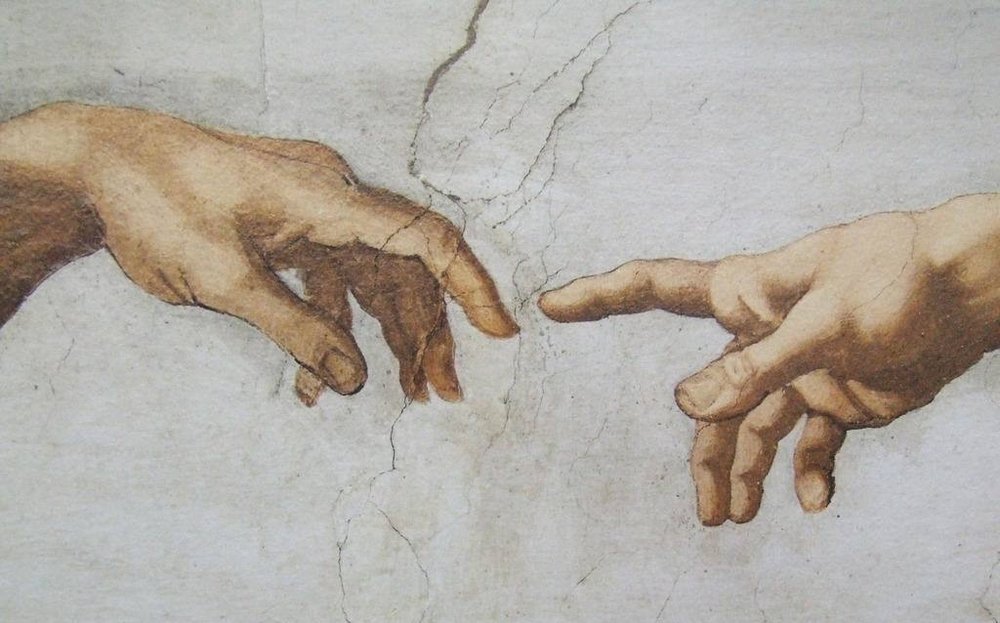
, researcher at the Geoscience Research Institute in Loma Linda, California
Many major news organizations ran headlines such as “Pope Supports Big Bang, Evolution” (Science News) and “Pope Francis Declares Evolution and Big Bang Theory Are Real and God Isn’t ‘a Magician With a Magic Wand’” (The Independent) this week.
Sensational headlines like these should prompt readers to double-check the facts before believing what they read. In this case, the headlines do not accurately reflect Pope Francis’ address on October 27 to the Pontifical Academy of Sciences.
In his brief remarks, the pope mentioned evolution and the Big Bang. But he insisted that even if the Big Bang had taken place and evolution occurs, these scientific explanations do not provide an ultimate cause for all things.
Many reasonable people would agree.
Pope Francis made repeated statements that could be taken straight from standard creationist understandings.
“This hope and trust in God, the Creator of nature, and in the capacity of the human spirit can offer the researcher a new energy and profound serenity,” he said.
He also said: “And so creation continued for centuries and centuries, millennia and millennia, until it became which [sic] we know today, precisely because God is not a demiurge or a magician, but the Creator who gives being to all things.”
The pope, at least in this talk, didn't even raise the specter of millions or billions of years of Earth history. His words are consistent with the biblical creation in which God formed different kinds of organisms with the capacity to diversify and fill the Earth.
This is quite different from what many people attribute to big bang cosmology and Darwinian evolution.
Britain’s Independent newspaper even reported on October 28 that “the pope made comments which experts said put an end to the ‘pseudo theories’ of creationism and intelligent design that some argue were encouraged by his predecessor, Benedict XVI.”
While some journalists may indeed have insight into the pope’s beliefs on these matters, Pope Francis gave no indication in this speech that he is engaged in “a significant departure from that of his predecessor, Benedict XVI, whose advisers endorsed the theories of intelligent design,” as Science News reported.
In fact, by insisting that a Creator God is necessary, the pope endorsed the central claim of intelligent design.
Why is it important to get the facts straight when it comes to “news” of this sort? Here are at least four reasons:
So what is really going on with the sensational articles about the pope’s address to the Pontifical Academy of Sciences?
This appears to be a case of agenda-driven journalism going viral. These headlines would appeal to a secular mind because, if the pope were to endorse scientific theories rooted in materialism, this might undermine belief in the eternal truths about creation that God has given in Scripture. The church would be surrendering its authority and bowing in the face of materialistic science. Those who identify themselves as Christians but embrace extra-biblical beliefs like theistic evolution may see papal endorsement of evolutionary views as a big step forward for their reinvented Christianity.
Whatever the motivation, it seems some people were so eager to hear the pope endorse their Darwinian views that they actually heard the words “Big Bang” and “evolution” and stopped listening.
On a more subtle level, there seems to be some equivocation over word meanings. For example, the pope appears to use the word “evolution” to mean development and change over time. This is a perfectly legitimate use of the word that no one—other than possibly some Platonists—would have trouble with, even the most ardent biblical creationist. The difference between theists, like the pope, and others, like atheists, involves the use of “evolution” to mean materialistic Darwinism, which denies any supernatural role in the origin of the universe and life.
Seventh-day Adventists and Roman Catholics agree in some areas. As Christians we are theists. We both believe Jesus Christ is the Creator God who died and was raised from the dead.
However, there are many areas in which we diverge, possibly most crucially over the authority of the Bible versus the authority of tradition. This leads to profound disagreement over the nature of humans, the state of the dead, and other doctrines. The unbiblical belief that God inserted an immortal soul into Adam at his creation allows for a diversity of unbiblical Catholic views about the creation.
In his address, the pope spoke in carefully crafted diplomatic language that employed ambiguities to accommodate these views. At the same time, he was very clear that he believes in divine action, both at the time of creation and, quoting Acts 17:28, in sustaining all of nature.
It would be surprising to learn that the pope suddenly publicly embraced materialistic Darwinian views at the expense of fundamental Catholic doctrines about God. Such a stance would put him in opposition to traditional views held by the early church fathers, not to mention those Catholics who share Adventists’ belief in the biblical creation. If Pope Francis had done this, the Catholic News Agency probably would not have chosen to report his Monday address with the headline: “Francis Inaugurates Bust of Benedict, Emphasizes Unity of Faith, Science.”
It would be unfortunate if misleading headlines confused anyone into thinking that the pope endorses materialistic Darwinism.
The Adventist disagreements with the doctrines of the Catholic Church are not news. They are long-standing. Among these, the Adventist Church asserts that the pope lacks the authority to change God’s commandments, particularly as they relate to the Sabbath, which commemorates the creation. We invite all people, from the pope to priests to parishioners, to join us in worshiping the Creator God on His weekly seventh-day Sabbath.